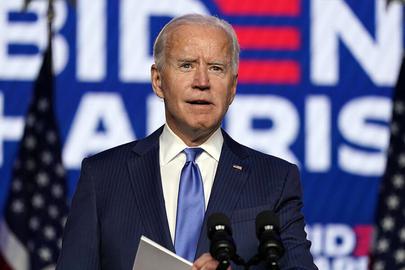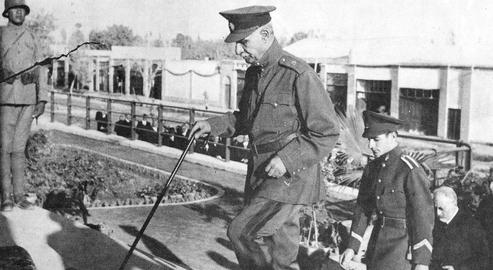When Joe Biden was elected as the 46th president of the United States on November 3, it sent reverberations throughout Iran’s political establishment, including a fresh push for Iran to abandon the full set of commitments it had promised when the country signed up to the nuclear deal in 2015. These tensions finally reached a head on Wednesday, December 2, when the Guardian Council approved a law to increase Iran's nuclear activities and reduce international oversight. The law clearly threatens to suspend the implementation of the Non-Proliferation Treaty Additional Protocol if Iran’s economic demands are not met. So what does the law say? How serious are the threats stipulated in the law? What will it mean for Iran and Iranians in the coming months? And how has this new law seen outside of Iran?
***
Wednesday, December 2 was a busy day for news and politics in the Islamic Republic. Iran’s new nuclear law was approved. Disputes between the president and the speaker of the parliament became more obvious than ever. The value of Iran's national currency fell once again.
President Hassan Rouhani and Speaker of the House Mohammad Bagher Ghalibaf continue to butt heads, with their disputes becoming more entrenched into the fabric of Iranian politics. Various members of parliament joined Ghalibaf in criticizing and cursing Rouhani on Wednesday, and they mocked the way he handled the newly-proposed bill in the house. Some of them even issued threats: "You will not die from coronavirus," some said ominously. The new law to boost nuclear enrichment production fueled tensions and attracted significant attention, but so did the details of the budget bill.
In Western countries, the new nuclear law has prompted a range of questions, chief among them: How serious is the new threat? Is this a bluff? Or is it the Islamic Republic’s ace in the hole?
What Does the New Law Say?
The law, the Strategic Action to Lift Sanctions and Protect the Interests of the Iranian Nation, was approved on Wednesday, December 2. It obliges the government to take three immediate steps:
- Resume production of enriched uranium at a purity of 20 percent to a level of 120 kg per year
- Increase reserves of enriched uranium at other enrichment degrees or purity by 500 kg per month
- Immediate supply of uranium enriched with more than 20 percent purity for peaceful purposes
The law requires the government to take the following action in the coming months if its conditions —including banking transactions and Iran's oil exports returning to normal — are not met:
- Installation and commissioning of advanced centrifuges
- Getting the operation of the metal uranium production plant in Isfahan underway
- Design of a new heavy water reactor
- Suspension of extra nuclear monitoring, including the implementation of the Additional Protocol.
The Sticking Point
Initially, the Guardian Council objected to parliament’s final decision on the nuclear program. According to Abbas Ali Kadkhodai, spokesperson for the Guardian Council, the opposition focused on Article 6, but after parliamentarians amended it, the body finally approved the law.
Kadkhodai did not elaborate on what the objections were, but a comparison of the original version of Article 6 with how it appears in the approved law indicates one important change. The original text stated that if banking and economic restrictions imposed by sanctions were not lifted, the voluntary implementation of the Additional Protocol, which allows for the International Atomic Energy Agency to inspect sites at short notice, would be suspended one month after the law came into force.
This "one month" has since been changed to "two months" in the final law.
The timing is not coincidental. President-elect Joe Biden will be in the White House from January 20, about 48 days from now.
A Decision Outside Parliament
The initial law, from the early stages of its drafting on November 3, was ambiguous and informally written, shying away from the legal language usually found in legislation. The law as of December 2, when it became law following the approval of the Guardian Council, retains some of these ambiguities, and can be interpreted in a range of possible ways.
The legislation has considerable functions beyond the courtroom. It’s a valuable tool for future negotiations with the West; it puts the government of Hassan Rouhani in a difficult position and makes it difficult for him to allow for concessions, and it creates a fertile ground for domestic competition.
The sense of putting “an ace in the hole" goes beyond parliament and no doubt has resonance throughout other political spheres and sectors within the Islamic Republic. In the meantime, the ignorance of the Rouhani administration has also been staggering: a review of the speeches of several Rouhani government officials even an hour before the final approval of the law shows how unaware they were of the behind-the-scene agreements between parliamentarians, Guardian Council members, and elements in the Supreme National Security Council.
According to BBC Persian, a day after Ghalibaf notified Rouhani of parliament's decision to suspend the implementation of the Additional Protocol voluntarily, Rouhani told government officials, "Do not get excited. Let us do our job."
"Let those of us with 20 years of experience and those who are successful in diplomacy and repeatedly defeat the United States at the United Nations try to resolve the matter," Rouhani said, He called for government agencies to engage in "consultation and consensus,” urging them to help do their job of governing the country with care and consistency.
Metallic Uranium, Meaningful Figures, Clock Ticking
Few Western analysts and media have reacted with serious concern to Iran's new nuclear law. Those who know Iran have seen the law in the context of parliament’s actual position within the Islamic Republic, and they do not see it any more than an ineffective" playing card for use in political games.
But several aspects of the law attracted attention, perhaps the most important of which is its timing and the issue of metallic uranium.
Analysis of the new nuclear law mainly points out that reasons for the Islamic Republic's haste to rush through the new law include two important meetings to be held in the coming weeks: the Joint Commission of the Joint Comprehensive Plan of Action (JCPOA) meeting in Vienna on December 16 and the United Nations Security Council meeting on Resolution 2231 scheduled for December 22.
The issue of metallic uranium has of course caused further controversy. Article 4 of the new law states: "The Atomic Energy Organization of Iran is obliged to start to operating a metal uranium production plant in Isfahan within five months after the adoption of this law."
Metal uranium is mainly used for military purposes and its civilian use is very limited. The text of the law makes no mention of the type of product that can be produced, and the sites where such a product should be used is also not indicated.
The Islamic Republic has previously stated it has no uranium metal production facilities. Ali Akbar Salehi, head of the Atomic Energy Organization of Iran, said two years ago: "We do not have a uranium metal production plant, but if we want to, we can make arrangements to build such a plant as well."
The new law obliges the government to increase the amount of 20 percent enriched uranium reserves to 120 kg per year.
The figure 120 kg is significant because it is exactly half the amount that Israel has set as its "red line".
Eight years ago, Israeli Prime Minister Benjamin Netanyahu gave his famous UN presentation, declaring that the accumulation of 240 kilograms at 20 percent enriched uranium within Iran was a red line. Since then, the term 240 kg red line has been a popular refrain in Iran.
Biden's Response
The approval of the new nuclear law in Iran can be interpreted as a loud address to US President-elect Joe Biden: "Now put aside your 'let's see' policy; Iran must be at the top of your priorities,” Iran is essentially saying.
The current US administration's policy of "maximum pressure" has not only suffocated the Iranian economy, but the expectation of insurgency inside Iran has challenged the Islamic Republic, questioning its survival.
On Wednesday, at the same time as the new nuclear law was being ratified, Biden was talking to New York Times columnist Thomas L. Friedman about Iran, among other matters and plans. Biden had previously spoken of his desire to return to the JCPOA, but this was his first comment after the US presidential election.
Joe Biden told The New York Times that although it would be difficult, he still hopes to return to the JCPOA and lift the sanctions. In the next phase, he said,: "in consultation with our allies and partners, we’re going to engage in negotiations and follow-on agreements to tighten and lengthen Iran’s nuclear constraints, as well as address the missile program."
Many analysts and even US officials have already said that reviving the JCPOA is not as easy as it seems. The most recent argument was made by The Washington Post a few days ago. It pointed out that Biden had many priorities to juggle as he begins his first days as president, and it was not clear that Iran was at the top of them. The article pointed out that the Supreme Leader’s ideas on renegotiations could be a big stumbling block in getting any new discussions underway.
On the other hand, Republican senator Tom Cotton reminded Americans on Twitter that countries and companies that want to do business with Iran should remember what happened with the JCPOA "A new Iran ‘deal’ that isn't ratified by the U.S. Senate will not survive in the long term.”
In Iran, the market soon responded to the adoption of the new nuclear law and the price of currency and gold increased.
The new law may well be an inefficient and useless card played to make trouble for Rouhani. But it could also be seen as an attack on people’s livelihood.
This time, it’s not just that hardline principlists who have tried to tie Rouhani’s hands and forced him not to negotiate or make concessions. Some Western analysts say it’s best for the Biden administration to wait until Iran’s presidential election next year before engaging in conversation with Iran. At that point, a political figure with closer ties to the Supreme Leader will likely be in place, and the nature of any negotiations will be heavily influenced by whoever ushers in the new era.
visit the accountability section
In this section of Iran Wire, you can contact the officials and launch your campaign for various problems



























comments